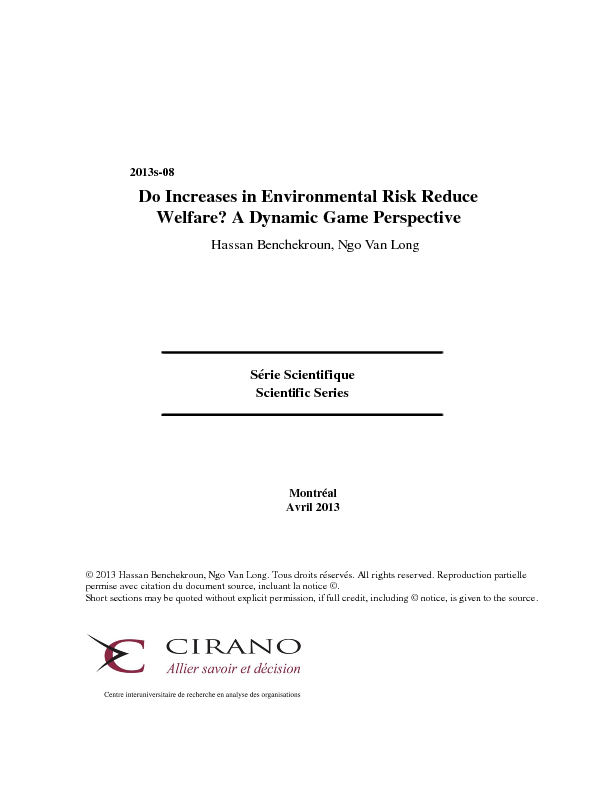Do Increases in Environmental Risk Reduce Welfare? A Dynamic Game Perspective
We consider the effect of an increase in the risk from pollution. We show that in the case of a flow pollution, when the number of players is sufficiently large, the result of Bramoulle and Treich, showing that a marginal increase of risk in the neighborhood of a risk-free world is welfare-improving, holds even when we consider non-marginal increases in risk and for any initial values of the risk. By contrast, in the case of a stock pollutant, we show that starting in a risk-free world a marginal increase in risk is always welfare reducing. However if the initial value of the risk is sufficiently large, the impact of an increase in risk depends on the level of the stock pollutant. In this non-negligible risk case, it is only for values of the stock of pollution that are below a certain threshold that an increase in risk can mitigate the failure from cooperation over emissions and increase welfare
[ - ]




